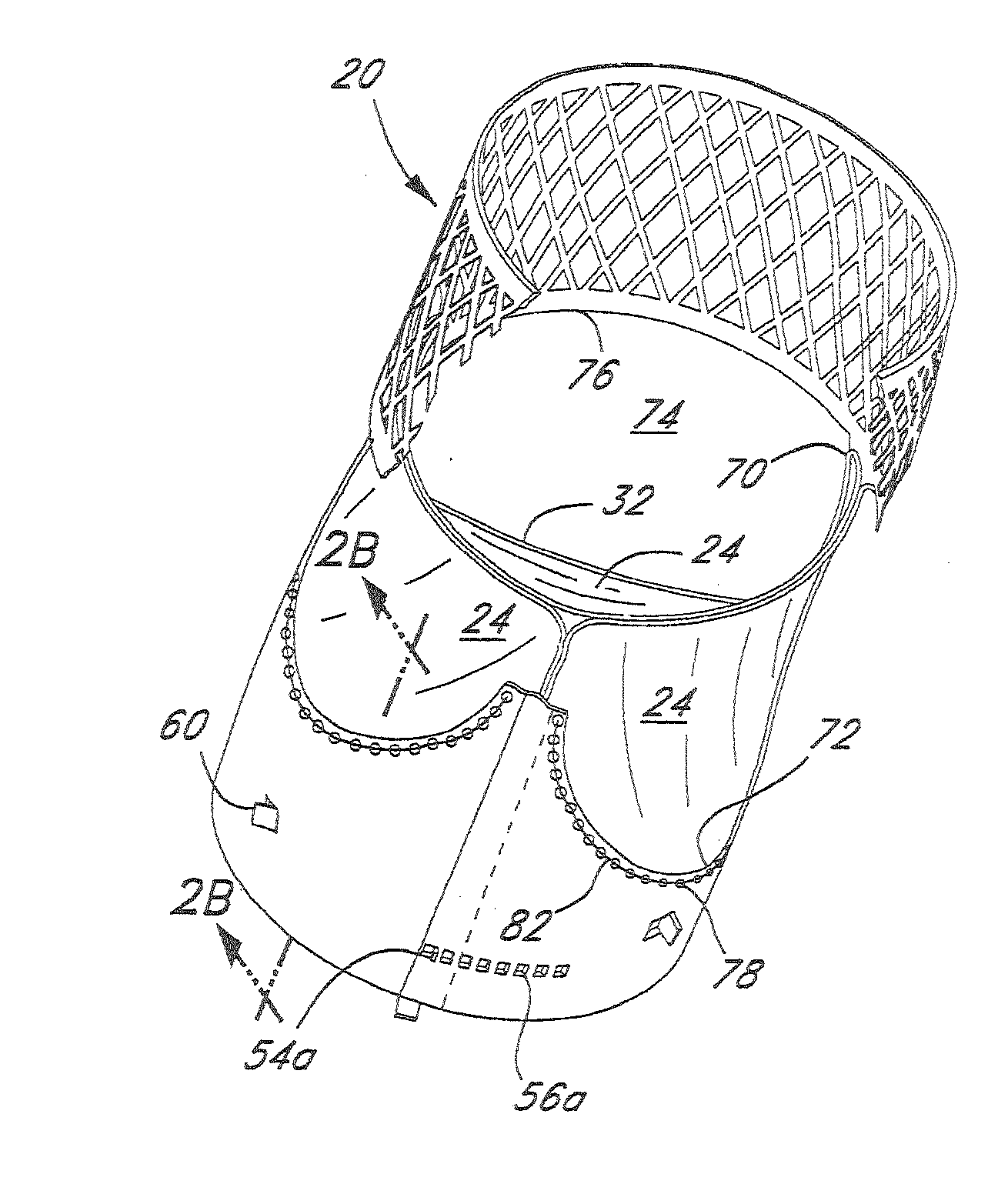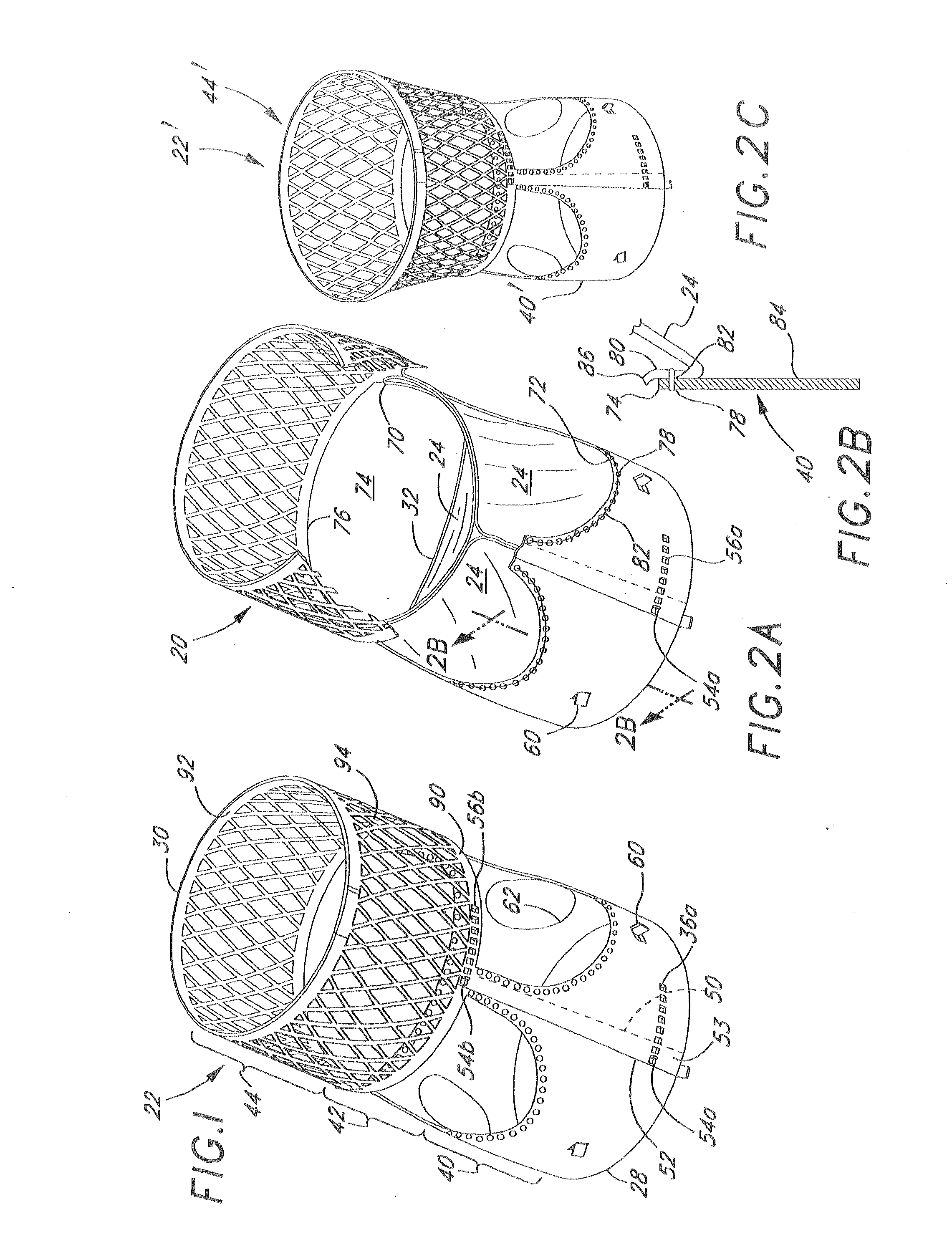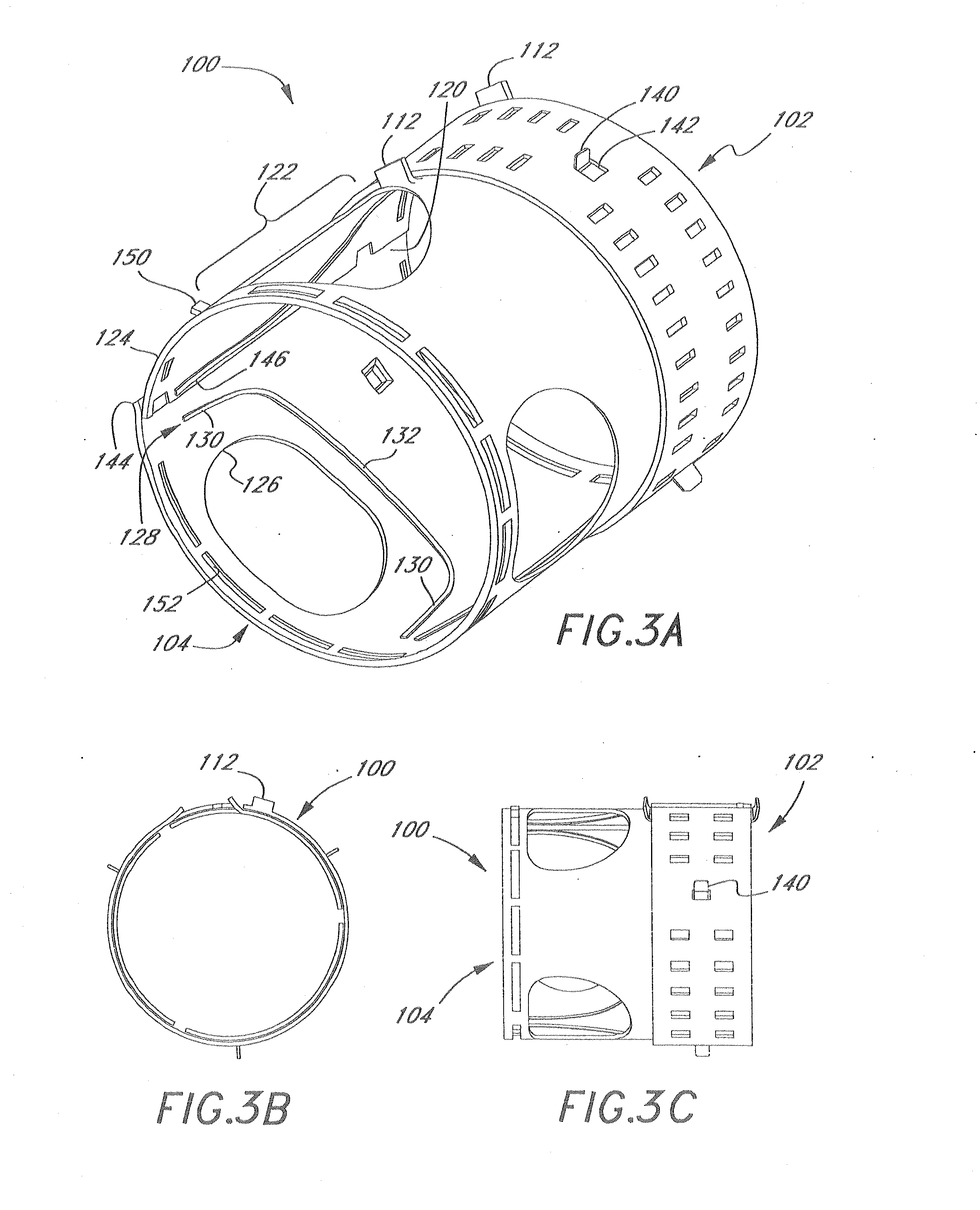Two-part expandable heart valve
a heart valve and expandable technology, applied in the field of medical devices, can solve the problems of insufficient tissue valve optimum structure, long recovery period, and high cost of open heart surgery, and achieve the effect of avoiding the need for open heart surgery
- Summary
- Abstract
- Description
- Claims
- Application Information
AI Technical Summary
Benefits of technology
Problems solved by technology
Method used
Image
Examples
Embodiment Construction
[0052] The present invention discloses a number of expandable heart valves for implantation in a host annulus, or host tissue adjacent the annulus. The valves may be implanted in any of the four valve positions within the heart, but are more likely to be used in replacing the aortic or mitral valves because of the more frequent need for such surgery in these positions. The patient may be placed on cardiopulmonary bypass or not, depending on the needs of the patient.
[0053] A number of expandable prosthetic heart valves are disclosed that are initially rolled into a tight spiral to be passed through a catheter or other tube and then unfurled or unrolled at the implantation site, typically a valve annulus. The heart valves comprise one- or two-piece stent bodies with a plurality of leaflet-forming membranes incorporated therein. Various materials are suitable for the stent body, although certain nickel-titanium alloys are preferred for their super-elasticity and biocompatibility. Like...
PUM
 Login to View More
Login to View More Abstract
Description
Claims
Application Information
 Login to View More
Login to View More - R&D
- Intellectual Property
- Life Sciences
- Materials
- Tech Scout
- Unparalleled Data Quality
- Higher Quality Content
- 60% Fewer Hallucinations
Browse by: Latest US Patents, China's latest patents, Technical Efficacy Thesaurus, Application Domain, Technology Topic, Popular Technical Reports.
© 2025 PatSnap. All rights reserved.Legal|Privacy policy|Modern Slavery Act Transparency Statement|Sitemap|About US| Contact US: help@patsnap.com



